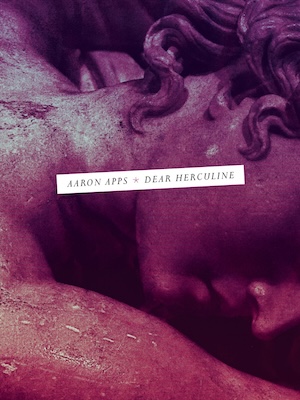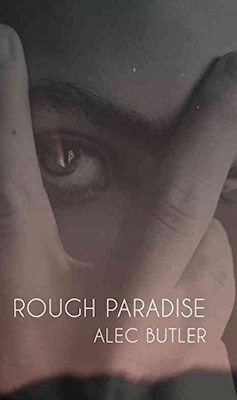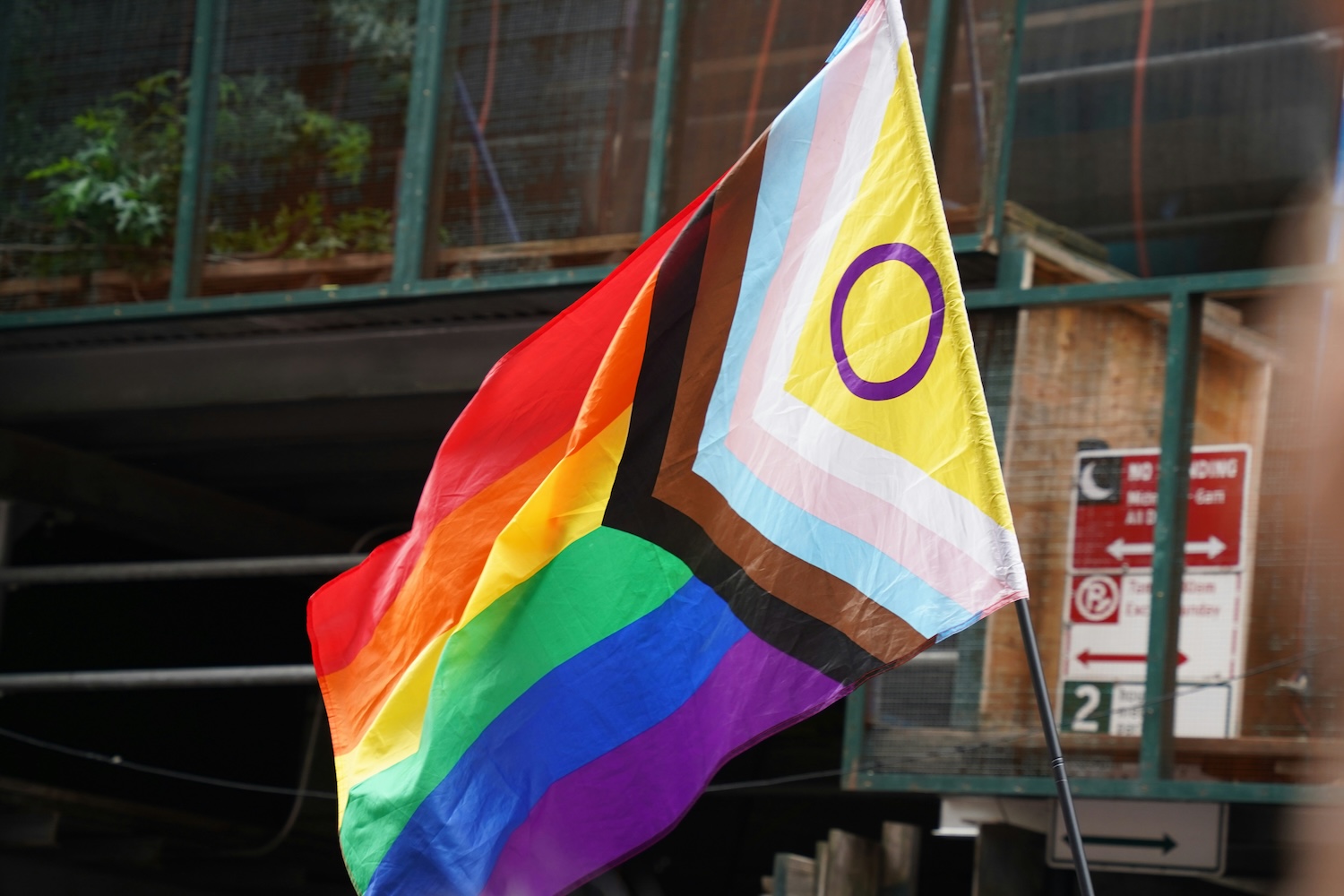Stories by and for intersex people are sparse. Throughout history, stigma has prevented intersex authors from publicly sharing their identities, so we don’t have an extensive intersex archive. We don’t yet have an intersex “canon.” But we’re making one. We’re acknowledging and celebrating the legacies we do have. We’re creating legacies for future intersex folks.
When I first received confirmation of my intersex variation, I knew a grand total of one out intersex person. I felt alone, especially because many intersex conditions are rare or rarely diagnosed. (I’m currently 1 in 58 million.) So I picked up a book, then another book, then another. I saw parts of myself reflected back that I hadn’t yet translated into words. I saw possibilities for my own life and advocacy in the world.
I’m a big proponent of reading, writing, and dreaming up what we want our futures to be. There’s still work that comes next to make them happen, but without those blueprints, we can’t make anything happen.
So consider these 10 books, all by openly intersex authors, as blueprints. In their own ways, each is filled with visions of expansive intersex futures that will benefit us all.
Nobody Needs to Know by Pidgeon Pagonis
In this stunning debut memoir, Pidgeon Pagonis describes a childhood filled with secrecy and shame, shuffled between doctors who urged, “Nobody needs to know.” When they discover the truth of their intersex identity as a college student, Pagonis must confront who they want to become in a world dictated by a harsh gender binary. Pagonis shares hard-earned wisdom from their years of advocacy, including co-founding the Intersex Justice Project and successfully pressuring Lurie Children’s Hospital of Chicago (where Pagonis had been a patient) to become the first hospital in the nation to publicly apologize for nonconsensual “corrective” surgeries on intersex infants.
Inverse Cowgirl by Alicia Roth Weigel
In 2017, Alicia Roth Weigel made history when she came out as intersex in front of the Texas state legislature, testifying against a discriminatory “bathroom bill.” Told as a series of stories about each of her tattoos, her memoir explores her unconventional, at times turbulent coming-of-age, through which she came to understand and embrace her intersex identity. If you’re a committed reproductive justice advocate who’s new to conversations about intersex rights, this is the book for you.
The Race to Be Myself by Caster Semenya
Amidst increasing hostility against athletes—especially Black and brown athletes—whose bodies do not match rigid gender norms, Caster Semenya’s memoir is an important read. Semenya is a South African two-time Olympic gold medalist and three-time World Champion in the 800-meter race. In 2019, World Athletics barred her from competing due to her genetic condition, 5-alpha-reductase deficiency, which falls under the intersex umbrella. (In July 2023, Semenya won an appeal to the European Court of Human Rights as she fights to compete again without taking harmful testosterone-reducing medications.) Semenya’s book is a rallying cry to protect athletes like her who may be “a different kind of woman,” but women nonetheless.
The Care We Dream Of: Liberatory and Transformative Approaches to LGBTQ+ Health by Zena Sharman
In this anthology of essays and interviews, Zena Sharman weaves an imaginative tapestry of what ideal LGBTQ+ healthcare and healing could look like. Although Sharman is not intersex, she interviews Intersex Justice Project co-founder Sean Saifa Wall on his dreams for future intersex care. He envisions reparations for those harmed by invasive surgeries and new practices that celebrate intersex individuals’ unique bodies.
Cripping Intersex by Celeste E. Orr
Although many intersex people do identify as disabled, intersex and disability rights movements have not historically collaborated as much as they could. In their first academic book, Dr. Celeste E. Orr examines the history of intersex medicalization through a feminist disability studies lens. They consider how nonconsensual surgeries have disabled intersex infants in the name of “normalization,” how strict policies around hormone-testing in sports emerged, and how modern methods that test embryos for genetic conditions including intersex variations rely on ableist and interphobic logics. This one isn’t for a lay reader, but it provides a thorough and socially engaged layout of contemporary intersex issues.
Vampire Burrito by Matt Mitchell
In their most recent poetry collection, Matt Mitchell recounts their childhood in Appalachia, looking back to determine how to look forward. Mitchell has an intersex condition that also causes infertility, which shapes how they imagine bringing a child into the world. Following their discovery of their intersex identity, Mitchell unpacks generational legacies of toxic masculinity to determine where they might fit within their family. This collection acts as a love letter to themselves, their future child, and other intersex poets everywhere.

Dear Herculine by Aaron Apps
Most aptly described as historical docu-poetry, Aaron Apps addresses his poems as letters to Herculine Barbin, who wrote extensively in the 19th century on her experiences as an intersex person. When so much intersex history has been obscured and erased, it can be miraculous to discover an ancestor who seems to reach across time and say, “You’re not alone.” This conversation through centuries is what Apps constructs, linking Herculine’s story to his own.
Icarus by K. Ancrum
The classic Icarus myth meets queer YA thriller-romance in K. Ancrum’s fifth novel. The main character, Icarus, is entangled in his father’s art forgery, but he begins to question everything he knows when he falls in love with the son of a wealthy man that his father is targeting. This novel explores grief, love, and the messiness of growing up. Ancrum wrote Icarus’s love interest as an intersex boy so that readers will come to understand and care for him alongside Icarus. Intersex people deserve to see themselves in love stories, too!

Rough Paradise by Alec Butler
In only 124 pages, this novella by Alec Butler packs a punch. Set in the 1970s, Rough Paradise follows an intersex and Two Spirit teen, Terry, as they navigate hatred from parents, teachers, and doctors in a working-class neighborhood. Terry finds solace in an intense relationship with another queer and Indigenous teen, but the very forces that bring them together also threaten to tear them apart.
An Unkindness of Ghosts by Rivers Solomon
Rivers Solomon has released a slew of impressive, lyrical books in recent years. An Unkindness of Ghosts was their debut novel. In a dystopian world drawing on histories of the Transatlantic slave trade, residents on a spaceship live akin to a pre-Civil War plantation. The main character, Aster, lives on the lowest deck amidst those with the darkest skin and highest prevalence of intersex traits. As she discovers more about the ship, Aster must decide whether to initiate a rebellion at potentially terrible cost. This book is rife with questions about what it takes to reach a better world for one’s self and descendants.
Read the original article here
